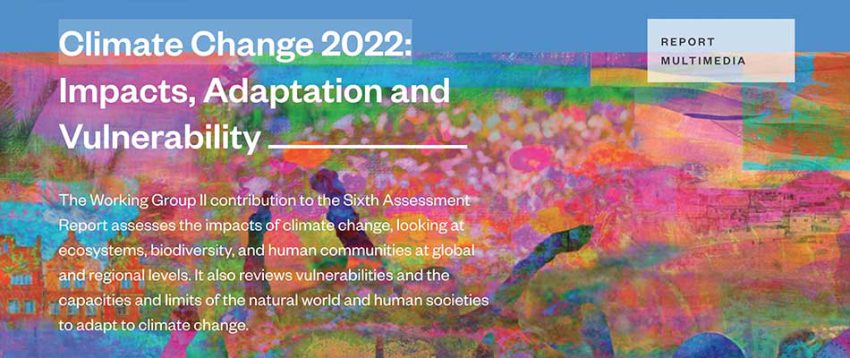This week the Intergovernmental Panel on Climate Change (IPCC) launched their latest global report on the climate crisis. It makes for an emotional read.
You can read and download it in full on the IPCC website.
The report concludes that the world is facing devastating and cascading risks from a worsening climate crisis. We can expect increasing threats to food and nature, more harm from extreme weather, and higher risks of “tipping points” which cannot be reversed.
Scientists warn that we have already seen some extreme climate events and conditions not projected to take place until 2100.
But the report also tells us one important message – this is far from game over. Solutions to the climate crisis already exist. We have the opportunity to not only halt global temperature rises, but also to build a future that is fairer, safer and healthier for all.
So, while it’s critical that we share the truth with our networks here through Brentwood Climate Action – it’s also vital that we give people hope. We must use moments like these to show people that a different future is possible – and give them an opportunity to join our fight for climate action.
Our colleagues at Friends of the Earth have put together a summary of the report, with key messages to share with our networks via email and social media, and quotes from our climate activist friends around the world.
But here are some of their key takeaways:
Extreme events
We have already seen some extreme climate events and conditions not projected to take place until 2100. These are projected to increase in magnitude and frequency. Such heatwaves, droughts, floods, storms, and fires will result in “compound and cascading” effects on agriculture, water resources, lives, livelihoods and infrastructure. Since 2008, 20 million people have been internally displaced by extreme weather events per year.
Sea-level rise
By 2050, it is predicted that more than 1 billion people living in coastal areas will be at risk from the dangers of sea-level rise. That means one in ten people on the planet will be directly impacted.
Tipping points
If global temperatures increase by more than 1.5 degrees, even if the temperature is brought back down subsequently, there is a severe risk of breaching “tipping points” which we cannot be reversed, including the release of carbon stored in peatlands, forests and permafrost.
Vulnerability
Over 40 per cent of people (3.3-3.6 billion people) live in highly climate-vulnerable countries. Almost all of these people live in the Global South. Vulnerability to the crisis is shaped by processes of marginalisation, such as gender, Indigenous identity, health, and poverty, according to the report. Women, the elderly and children in low-income households, Indigenous Peoples and minority groups, small-scale producers and fishing communities are most at risk of impacts such as food insecurity.
Ecosystems and biodiversity
We are witnessing the first climate-driven extinctions. In biodiversity hotspots, 24 per cent of species will be at very high extinction risk at 1.5 degrees of heating. For endemic species, this could raise to 84 per cent of species at very high risk of extinction in mountain regions, and 100 per cent of species on islands.
Food and water
Hundreds of millions of people, especially in Africa, Asia, Small Islands, Central and South America, and the Arctic are being impacted by stresses on food systems. 10 per cent of current livestock and crop areas may become unsuitable by 2050, rising to 30 per cent by 2100.
However, while there is no escaping the seriousness of the report findings, it is far from “game over”. The report concludes that there exist realistic solutions, and that they must be equitable and based on the principles of climate justice.
Friends of the Earth globally, and us here at a local level in Brentwood, have a vision for a future that is safer, more just, and sustainable, and that vision is still within reach.
What’s our response?
“Climate reports are plentiful, and this is yet another report that says the planet is changing even faster than predicted. This means lives are being endangered and lost today, not in a distant future.
“The time for reality checks is long gone: we have the answers and means to step back from the brink of climate catastrophe. It starts with an immediate end to the age of fossil fuels and ramping up the shift to renewable energy with all of the governmental support to see that crucial transition through.” Rachel Kennerley, International Climate Campaigner, Friends of the Earth.
What can I do right now?
Come and join us at Brentwood Climate Action.
We have our next meeting lined up for later this month where all are welcome – and you can join for free as a Member, and get on our mailing list for all future information.
And you might want to take some Action right now – by signing our petition to call on Brentwood Borough Council to declare a Climate Emergency.

